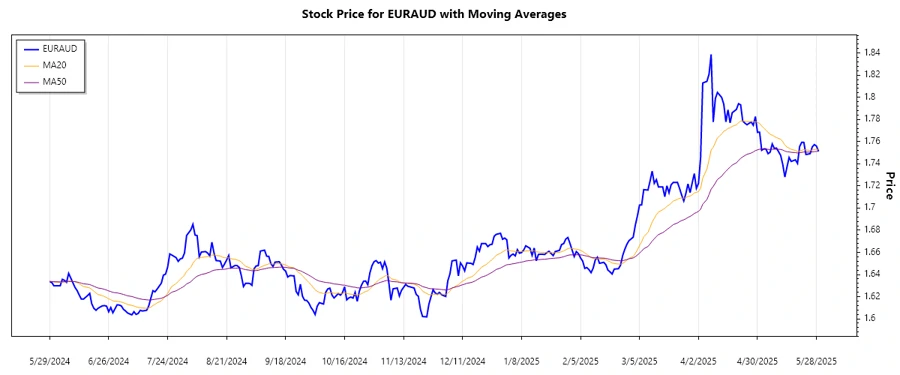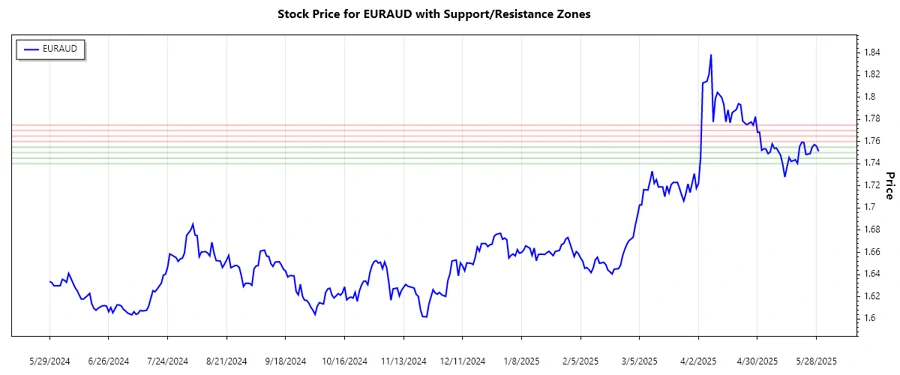May 29, 2025 a 04:28 am



EURAUD: Trend and Support & Resistance Analysis

The EURAUD currency pair has shown volatility over the past months, with fluctuations indicating potential shifts in trend direction. Recent analysis of moving averages suggests a complex interplay between bullish and bearish forces. Investors should pay close attention to key support and resistance levels as they could signal future price movements.
Trend Analysis
Through detailed calculation, the 20-day and 50-day EMAs reveal critical insights. The recent EMA figures indicate:
| Date | Close Price | Trend |
|---|---|---|
| 2025-05-29 | 1.75127 | ▲ (Up) |
| 2025-05-28 | 1.75592 | ▲ (Up) |
| 2025-05-27 | 1.75731 | ▲ (Up) |
| 2025-05-26 | 1.75521 | ▲ (Up) |
| 2025-05-25 | 1.7491 | ▼ (Down) |
| 2025-05-23 | 1.74835 | ▼ (Down) |
| 2025-05-22 | 1.75928 | ▲ (Up) |
The EURAUD is currently showing a bullish trend based on the EMA crossover; this suggests potential gains if the trend continues.

Support and Resistance
Based on calculated levels, here are the prominent support and resistance zones:
| Zone Type | From | To |
|---|---|---|
| Support | 1.7400 | 1.7450 |
| Support | 1.7500 | 1.7550 |
| Resistance | 1.7600 | 1.7650 |
| Resistance | 1.7700 | 1.7750 |
The current price is near a resistance zone, which might cause a temporary pullback.

Conclusion
In summary, the EURAUD showcases a potential upward trend bolstered by moving averages, yet faces challenges when approaching significant resistance levels. Investors should monitor forthcoming economic events and price actions near outlined zones to seize potential trading opportunities while managing risks sensibly. The currency pair's behavior near the EMA lines could influence upcoming market dynamics, facilitating calculated speculation for traders.
